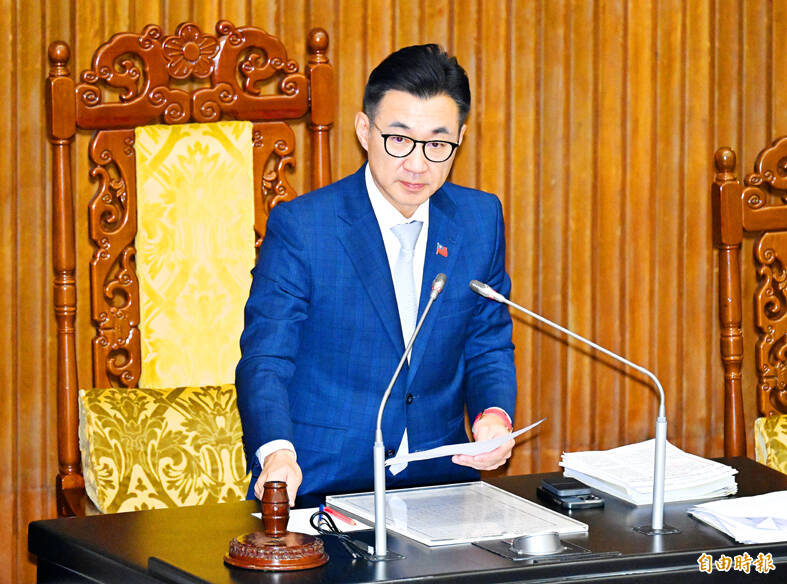《TAIPEI TIMES》Whistle-blower protection bill passed

Deputy Legislative Speaker Johnny Chiang bangs the gavel as the Legislative Yuan passed a bill on whistle-blower protection in Taipei yesterday. Photo: Liao Chen-huei, Taipei Times
STANDING UP:The bill defines whistle-blowers as public servants or employees at state-owned corporations who report unethical acts and are willing to go on record
By Chen Cheng-yu and Jake Chung / Staff reporter, with staff writer
The Legislative Yuan yesterday passed a bill on whistle-blower protection that awards employees in government agencies and government-run businesses and groups who inform the public of unethical acts.
The bill’s first iteration at a meeting of the legislature’s Judiciary and Organic Laws and Statutes Committee on Nov. 7 was initially named the draft whistle-blower protection act, but the name came under discussion based on whether it would apply to the public sector, the private sector, or both.
The legislature yesterday voted to adopt an amended Chinese Nationalist Party (KMT) version of the bill, which says that the act would only apply to government agencies and state-owned businesses.
The proposed act protecting anti-corruption informants (公益揭弊者保護法案) says that the Ministry of Justice would have jurisdiction over its implementation and that it should establish a Whistle-blower Protection Committee staffed by seven members and chaired by the Minister of Justice.
The bill defines whistle-blowers as public servants or employees at state-owned corporations who report unethical acts and are willing to go on record as the individual reporting the act.
The bill also defines unethical acts as acts and behavior that would contravene Chapter 4 of the Criminal Code, the Anti-Corruption Act (貪污治罪條例), sections under the Act on Recusal of Public Servants Due to Conflicts of Interest (公職人員利益衝突迴避法) in which the civil servant would be fined, the Judges Act (法官法), the Trade Secrets Act (營業秘密法), the Money Laundering Control Act (洗錢防制法) and the Anti-Infiltration Act (反滲透法).
The bill defines relevant agencies or individuals to whom whistle-blowers should report unethical acts as the supervisors or heads of government agencies; the supervisor or manager of a state-owned business; businesses, groups and agencies controlled by the government; the judiciary or the police; the competent authorities under which the whistle-blower works; the Control Yuan; or other government ethics departments.
The bill says that retaliatory measures against whistle-blowers — their dismissal, removal from office, denying their rights and benefits in terms of promotions, or reassigning them to jobs or locations that would be detrimental — are banned.
Those retaliating against whistle-blowers would be punished according to the Civil Servants Penal Act (公務員懲戒法) and the Civil Servants Performance Evaluation Act (公務人員考績法), the bill says.
People who are not civil servants leaking the name of a whistle-blower without cause would face up to one year in prison and a fine of up to NT$100,000, it says.
Additional reporting by CNA
新聞來源:TAIPEI TIMES















